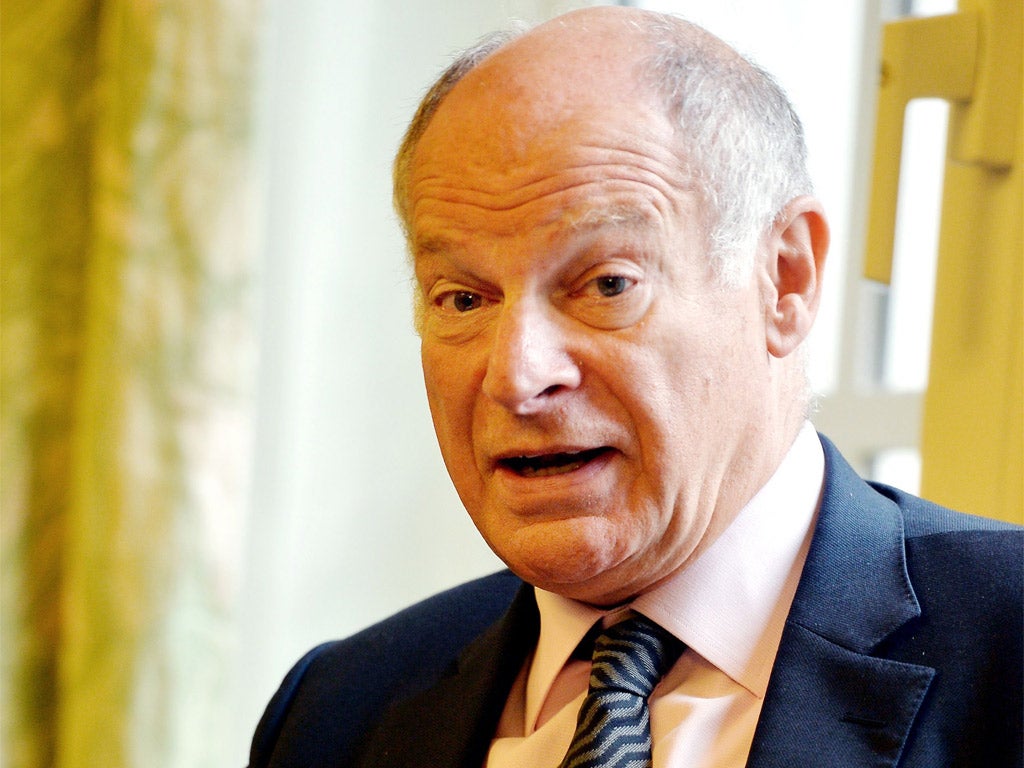'A rank denial of justice' for vulnerable people: Senior judge attacks plan to cut legal aid by £350m
Lord Neuberger has put himself at odds with the Justice Secretary, who is seeking to cut the £2bn-a-year bill in England and Wales

Your support helps us to tell the story
From reproductive rights to climate change to Big Tech, The Independent is on the ground when the story is developing. Whether it's investigating the financials of Elon Musk's pro-Trump PAC or producing our latest documentary, 'The A Word', which shines a light on the American women fighting for reproductive rights, we know how important it is to parse out the facts from the messaging.
At such a critical moment in US history, we need reporters on the ground. Your donation allows us to keep sending journalists to speak to both sides of the story.
The Independent is trusted by Americans across the entire political spectrum. And unlike many other quality news outlets, we choose not to lock Americans out of our reporting and analysis with paywalls. We believe quality journalism should be available to everyone, paid for by those who can afford it.
Your support makes all the difference.Britain's most senior judge has warned the Government that its proposed cuts to the legal aid budget could mean “a rank denial of justice” for vulnerable people.
Lord Neuberger of Abbotsbury, President of the Supreme Court, also criticised plans by ministers to restrict the right of individuals to challenge decisions by public authorities in the courts through judicial review. He warned that governments are bringing forward a “welter of ill-conceived legislation” that is “poor in quality and voluminous in quantity.”
Giving the Tom Sargant memorial annual lecture to the Justice law reform group, Lord Neuberger put himself at odds with Chris Grayling, the Justice Secretary, who is seeking to cut the £2bn-a-year legal aid bill in England and Wales by £350m a year. He said: “Cutting the cost of legal aid deprives the very people who most need the protection of the courts of the ability to get legal advice and representation. That is true whether one reduces the types of claim which qualify for legal aid or increases the stringency of the requirements of eligibility for legal aid. The recent changes have done both.”
The head of the Supreme Court warned: “If a person with a potential claim cannot get legal aid, there are two possible consequences. The first is that the claim is dropped: that is a rank denial of justice and a blot on the rule of law. The second is that the claim is pursued, in which case it will be pursued inefficiently, and will take up much more of the court staffs' time and of the judge's time in and out of court. So that it means greater costs for the court system, and delay for other litigants.”
Lord Neuberger urged ministers to be “very careful” about proposals to cut down the right to judicial review. “The courts have no more important function than that of protecting citizens from the abuses and excesses of the executive - central government, local government, or other public bodies,” he said.
Join our commenting forum
Join thought-provoking conversations, follow other Independent readers and see their replies
Comments